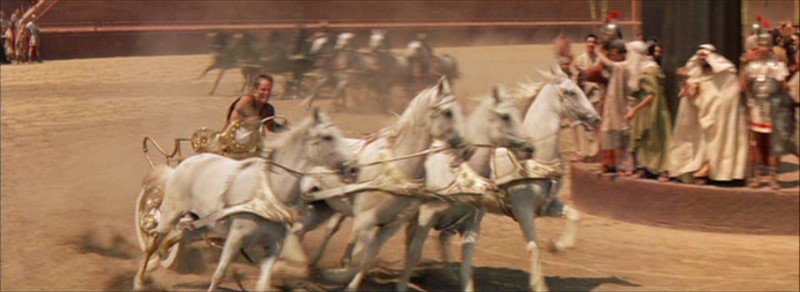1964--My Fair Lady—George
Cukor
Nominated: Becket, Dr.
Strangelove or: How I learned to stop worrying and love the bomb,
Mary Poppins, Zorba the Greek
Should have won: Mary
Poppins
Be sure to see: A Shot in
the Dark, At Midnight I'll Take Your Soul, Spider Baby or the Maddest
Story Ever Told, 2000 Maniacs
“There even are places
where English completely disappears. In America they haven't used it
for years”--Professor Henry Higgins
The birth of this movie
was long before Audrey Hepburn brought Eliza Doolittle to the screen.
George Bernard Shaw wrote the play Pygmalion in
1912. In 1956, it became a stage play and, under a new title My
Fair Lady, was the longest run
of any musical theater production in history. This
version of the film was originally supposed to have Julie Andrews in
the Doolittle role, Peter O'Toole or Cary Grant as Henry Higgins, and
James Cagney as Eliza's father. I think I could see some of those
roles panning out but not James Cagney. I know it isn't right to
typecast someone but I'll forever see Cagney as the ruthless gangster
in White Heat.
Instead of singing “Just a little bit” he might fill Higgins with
lead.
It
is London (as if the annoying accents didn't give that away) and
Professor Henry Higgins (or is it Iggins?) and Colonel Hugh Pickering
make a bet on whether Higgins could take a slummy flower-selling
woman and teach her phonetics so that she could be passed off as a
proper speaking aristocrat. This woman is Eliza Doolittle and
painstaking lessons go underway as Higgins attempts to get Eliza to
pronounce words properly. Lessons to get her to pronounce her “A's”
(The rain in Spain stays mainly in the plain) and “H's” (In
Hartford, Hereford, and Hampshire, hurricanes hardly happen)
correctly. When she finally grasps the long “A” concept I was
relieved for two reasons. One, it sets off a song that I kind of
liked and also so I didn't have to listen to her pronounce “A” incorrectly anymore. It was murder listening to her say “The rine in Spine sties minely in the pline.” I think the most
difficult thing for me to accept while watching this movie is the
British accent is so annoying to my ears that even when they speak
correctly it is still sounds bad. But for what it is worth, Pickering
and Higgins didn't exaggerate the accents, particularly the way
Eliza's father does in the movie. Or watch the 1968 Oscar winner
Oliver! Talk about
annoying accents. As for scenes of a speech coach teaching dictation
to a woman who can't grasp it, see the hilarious scene in Singin'
in the Rain when a diction coach
is trying to get Lina Lamont to pronounce “And I can't stand him”
to no avail.
Roger
Ebert has said that for a movie to be great it should have three
great scenes and no bad ones. In the case of My Fair Lady
it exceeds this total of great scenes but it does have one bad one as
far as I am concerned. Eliza's father has a musical number where he
sings “Just a little bit” and it goes on forever, has silly dance
steps that don't fit the complexity of most musical numbers, and it
got old fast. All right, so this movie has a bad scene for me but it
didn't really drag the movie down. And one other scene that had me
scratching my head is after Eliza is prim and she goes to a horse
race and attracts a young man who is taken aback by her beauty and
charm. For days he stays outside her house just in case she invites
him in. I suppose it should be taken that he would go home and then
return to the house and ask the housekeeper if he can see her from
time to time, but the movie gives me the impression he just camped
out there.
I
liked My Fair Lady. The
story is familiar, borrowed by films like She's All That or
perhaps Pretty Woman.
Some of the music was catchy and
the cast is great. I kind of liked, but bet most women will despise,
the song “Why can't a woman be more like a man?” The lyrics are
ridiculously offensive but I wonder if that was the joke or, if because
of the time, they were legit. It is a good movie but it is hard to
accept it beat Mary
Poppins, a superior
movie and, incidentally, a superior musical.


